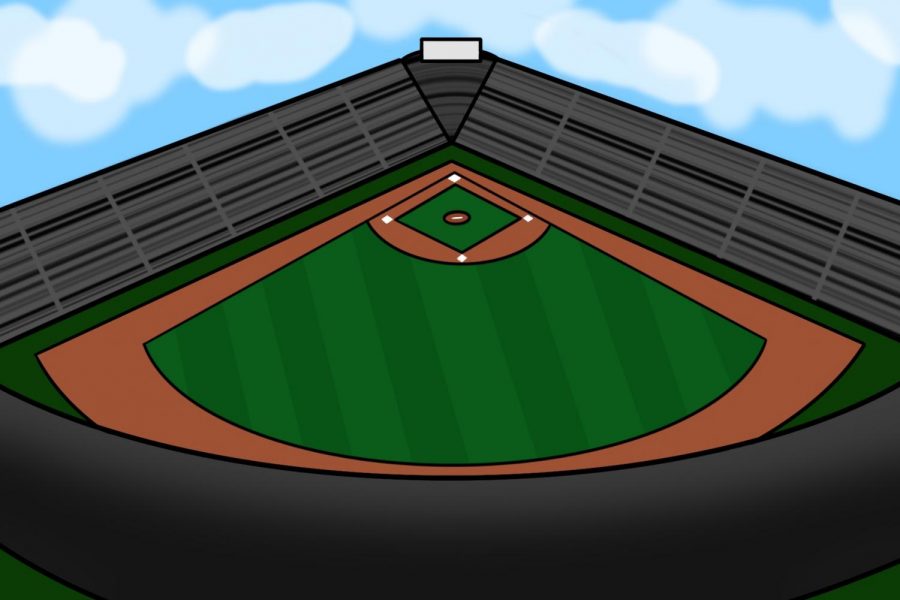MLB’s return is a recipe for disaster
July 6, 2020
While I was originally ecstatic for Major League Baseball’s return, it has become clear that baseball’s return will be below typical MLB play standards and come with severe risks that outweigh the upside.
On June 23, MLB commissioner Rob Manfred implemented a 60-game season that is set to begin on July 23. The 60-game season is drastically shorter than a typical season, which is usually a marathon of 162, nearly daily, games.
Teams only began practicing last week, and difficulties in safety protocol have already appeared. Several teams had to cancel their practices on July 6 after results from COVID-19 tests administered on July 3 hadn’t come in. A tester set to administer COVID-19 tests to Los Angeles players on July 5 didn’t show up. Sean Doolittle of the Washington Nationals said he has still not received any PPE, even though this gear was part of the agreement the MLB Players Association has made with team owners.
With over two weeks until the season is scheduled to begin, there is likely to be additional problems.
If the MLB does return, the games will almost certainly not be up to the league’s typical standards. Although the league has created a special COVID-19 injury list for players who test positive during the season, replacement players are likely to be ill-prepared.
Typically, when a player is injured or underperforming during a typical MLB season, another player comes up from a minor league affiliate to take his place. These minor league teams play a full schedule as well to ensure players are ready to play when called upon. However, the minor league season was canceled this year. In its place, teams must create a second roster of players who could potentially play who will train and scrimmage away from the main roster. Baseball is a sport built on superstition and routine, neither of which will be possible this year as players play against their own teammates.
While the MLB is only releasing news of positive COVID-19 tests with player permission, several stars have announced their test results. Two sluggers, Freddie Freeman of the Atlanta Braves and Joey Gallo of the Texas Rangers, have said that they’ve tested positive. Lesser-known players such as Luis Urias of the Milwaukee Brewers and Silvino Brancho of the Arizona Diamondbacks are also among those that have tested positive.
Other players who have not tested positive have still opted out of the season’s return, citing concerns for their family’s health. Human highlight reel and generational talent Mike Trout has said he might not play, with his wife expecting their child in August. Zach Wheeler, who signed a five-year $118 million contract this offseason, has also cited the expected birth of his child in July as he considers opting out. Los Angeles Dodgers pitcher David Price sacrificed his nearly $12 million salary in 2020 when he decided to opt out. And Nick Markakis of the Atlanta Braves also decided to opt out after he heard the symptoms of his teammate Freddie Freeman.
There’s also the possibility of the league being forced to suspend play before the end of the season. While the World Series is typically played in October, a second wave of COVID-19 is expected to hit at the same time.
Several cities where teams play are seeing dramatic rises in COVID-19 cases. Florida, home of the Tampa Bay Rays and the Miami Marlins, set a record on July 4 for the most COVID-19 cases in a single state in one day. Arizona, home of the Arizona Diamondbacks, has re-closed gyms and other businesses due to a spike in cases. California, the home of five different MLB teams, recently announced a second shutdown of 19 counties due to the virus.
The league’s return is also complicated by an international border. The Toronto Blue Jays play their home games in Canada, which could be difficult this season since the Canadian-American border is closed to all nonessential travel. While the Canadian government has permitted the team to practice in Toronto, the Blue Jays have explored playing their games in Buffalo, New York.
The MLB is going to great lengths to try and prevent an outbreak of COVID-19. Players are no longer allowed to spit sunflower seeds or chewing tobacco. Instead of licking their fingers to get a better grip on the ball, pitchers will carry a damp rag. And bench clearing brawls, which typically occur in a game after a player gets hit by a pitch, are strictly prohibited.
If baseball does return this season, games will look and feel different. And with so much risk for everyone involved, the danger seems to outweigh the upside. As much as it pains me to say, it may simply be too hazardous to play baseball during a pandemic.


